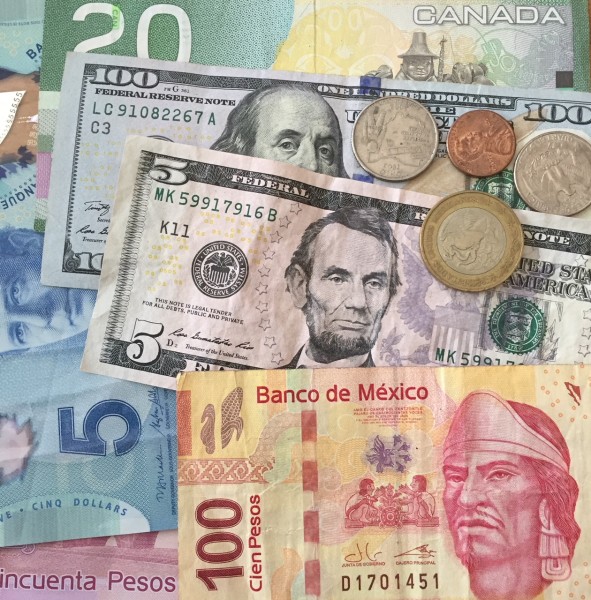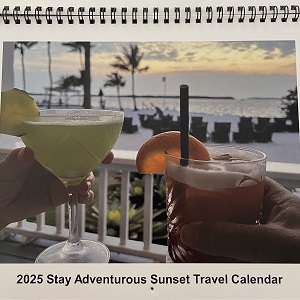Traveling is an exciting opportunity to explore new places, meet new people, and create unforgettable memories. However, it also comes with certain financial risks. Whether you’re heading across the country or overseas, the potential for theft, fraud, or accidental loss of money can quickly turn a dream trip into a stressful ordeal. Moreover, being unprepared financially has the potential to jeopardize your travel experience and may have lasting consequences.
Fortunately, the best defense is a solid strategy paired with vigilance. A little preparation will go a long way in keeping your travel plans on track, no matter where you go. Take a proactive approach and adopt smart financial habits before you even depart. This way, you can safeguard your money and reduce the likelihood of falling victim to common pitfalls.
This article will guide you through practical tips to help keep your money safe while traveling. With these measures in place, you’ll feel more confident and secure, leaving you free to focus on enjoying the journey.
Use Travel-Friendly Payment Methods
When cash isn’t an option and carrying multiple cards feels risky, technology gives you a safer alternative. Payment tools like credit cards with low foreign transaction fees, prepaid travel cards, and e-wallets can streamline your transactions and reduce vulnerabilities. If you’re traveling the Philippines, for instance, you might wonder, “Is Paymaya legit and safe?” Fortunately, this all-in-one banking app is fully regulated by the Bangko Sentral ng Pilipinas and thus employs all the latest security features to protect its users’ funds.
Travel-friendly credit cards are a particularly smart choice, as they often include fraud protection and can quickly freeze unauthorized charges. When possible, choose a payment method that provides purchase protection, travel insurance, or cashback rewards—these features will add both value and peace of mind to your trip.
Keep Your Money in Separate Places
Imagine losing your wallet where you keep all your cards and money while exploring a bustling marketplace or a crowded city street. Stressful, right? You can minimize the impact of such a loss if you divide your money across multiple secure locations.
Keep some cash and a backup card in a hidden travel pouch or money belt, and leave the bulk of your funds in your hotel safe or another secure spot. This practice ensures that even if one source is compromised, you’ll still have access to funds. Avoid placing everything in one bag, pocket, or wallet, as this increases the risk of total financial loss in case of theft or misplacement.
Tell Your Bank and Credit Company About Your Plans
Few things are more frustrating than having your credit card declined while traveling due to a mistaken fraud alert. Banks and credit card companies monitor transactions for suspicious activity, and unfamiliar spending locations could trigger a block on your account. To avoid this, inform your bank and credit card provider of your travel dates and destinations before you leave. Many providers offer the option to set up travel notifications through their online portals or mobile apps, which ensures uninterrupted access to your funds while still maintaining robust fraud protection.
Limit the Amount of Cash You Carry
While cash is universally accepted and often essential for small transactions, carrying large amounts can make you a target for theft. Instead, plan your daily budget and take only what you’ll need for the day plus some incidental funds. Secure the rest of your money in your hotel safe or a similarly secure location.
When using cash, break larger bills into smaller denominations. This reduces the need to flash significant amounts in public and makes transactions faster and safer. When you limit the cash on your person, you not only minimize potential losses but also feel less anxious about your financial safety.
Use ATMs Wisely
ATMs are convenient but not all are equally secure. Machines located in poorly lit or isolated areas can be targets for theft or may be tampered with by scammers. As such, prioritize ATMs inside banks, shopping malls, or other secure, high-traffic locations for added safety.
Before inserting your card, check the machine for unusual attachments or devices that could indicate tampering. If something looks off, don’t proceed. Don’t forget to shield your PIN from prying eyes or cameras, and withdraw only what you need to avoid carrying excessive cash.
Carry Emergency Contact Numbers
Access to the right contact information can make all the difference in a financial emergency, so keep a list of your bank’s international helpline numbers, credit card hotlines, and local embassy contacts. These numbers will help you quickly report lost or stolen cards, freeze compromised accounts, and request replacements if needed.
Make sure these contacts are accessible even if your phone is lost or out of battery. Store them in a secure cloud service or email them to yourself so that you can retrieve them from another device if necessary. You can also write the contact numbers on a piece of card and have it laminated for protection.
Don’t Flash Your Cash
When traveling, subtlety is key to staying safe, especially when you decide on a solo travel adventure. You’ll attract unwanted attention if you routinely pay with large bills or display significant amounts of cash, especially in busy or tourist-heavy areas. Keep your transactions low-profile by organizing your money discreetly and only taking out what’s needed for each payment.
Consider using a smaller, easily accessible wallet for daily cash while keeping larger amounts hidden elsewhere. Being mindful of how you handle money in public reduces the chances of becoming a target for theft and allows you to move about with more peace of mind.
Traveling should be about creating memories, not worrying about financial setbacks. Take proactive steps to secure your money ahead of time so you can focus on enjoying the journey with confidence. After all, a little preparation today can mean a worry-free adventure tomorrow.


















